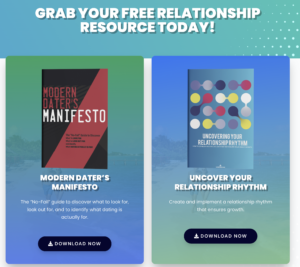DATING AFTER DIVORCE -Part 2: Are They Ready?
As discussed in Dating After Divorce part 1, before stepping into a new relationship you really need to take proper time to heal and evaluate where you are at personally to determine if you are ready for another relationship. This process should include three important steps:
- Deal With the Anger and Grief
- Dig Up the Past
- Ask Yourself the Hard Questions
For more on these check out part 1
Once you have determined that you are in a good space and emotionally available to give your all in a relationship again, step 2 is determining if the other person is ready! No need to get into a relationship with someone else who doesn’t have the tools or capacity to give you what you need in the relationship. This will only lead to more confusion and pain down the road. Evaluating the readiness of another person can feel like a daunting task as many people are experts in image management, giving you what they think you want to hear while hiding where they really are at. In an effort to look behind the curtain and determine whether the other person is ready to be in a relationship with you, I would encourage you to ask yourself the following four questions taken from John Townsend’s book “Beyond Boundaries.” This would be a great read for you if preparing to move towards marriage again.
Does this person care about his or her impact on you?
If you’ve ever been in an unhealthy relationship it is likely that you experienced a relationship in which the other person gave little or no thought to how their attitudes and actions impacted you. The extent to which another person is concerned about their impact on you is the extent to which you can trust them. It’s hard to feel safe with and trust a person that doesn’t seem to be concerned with how they impact you. A person who cares about their impact on you will be a person that you can share concerns with and they will be more focused on your well-being than they are on their own comfort.
To understand what this looks like in relationship let’s use the example of a husband who is chronically late and fails to communicate with his wife about his schedule. The wife decides to bring this issue to her husband and share how his behavior is impacting her. A person who doesn’t care about their impact might respond saying, “You’re always micromanaging me. I’m a grown man and shouldn’t have to check in every time I’m going to be a few minutes late.” A person who cares about their impact on you may respond in a way that acknowledges how their behavior impacts you by saying something like, “I guess it’s hard when I tell you I’ll be home at 6 and usually show up at 6:45. I will work on doing better.” If a person doesn’t seem to care about their impact on you, they are not ready to be in a relationship with you.
Is this person connected to Good people?
You’ve likely heard before that you will become like the 5 people you spend most of your time with. None of us live in a vacuum, we are all highly influenced by the people we spend time with. If the person you are choosing to date does not have this outside network, you run the risk of entering an unhealthy, dependent relationship with them. This may feel good in the beginning as we all love to be valued and needed, but it can quickly become unhealthy as you lose your sense of independence. This is why it is so important for you to become healthy before you even think about dating so another person’s dependence on you is more appalling than it is appealing. Codependent relationships feel good to both people in the beginning but always lead to controlling and toxic situations as the relationship progresses.
The person you choose as a potential marriage partner needs both a source of support and a source of truth that does not depend on you. They also need outside accountability other than you for those seasons in the relationship when they don’t want to be accountable to you but still need someone to hold them accountable for unhealthy behaviors or attitudes. This will require authentic friendships and community in the person’s life. Don’t make the mistake of assuming church attendance qualifies because you can attend church regularly and still be alone when it comes to others knowing the deeper parts of your life and struggles. Good people in the life of your marriage partner is an added level of security for your relationship. Since you may be asking the question, “What qualifies as a Good person in their life?”, here are some traits:
- You share similar values with them
- You like them
- You see vulnerability in their relationships
- You see good “fruit” in them (they are growing and healthy)
- They make others around them better
If you have reservations about the people who surround your potential future spouse, that is a red flag. Additionally, if your friends are uncomfortable with the other person you should never stay in a relationship with them.
Can this person handle a relationship with you?
This seems like a funny question and I’m sure you believe that anyone would be blessed to find themselves in relationship with you…but there also may be some areas of your life and personality that not everyone is equipped to manage. Part of finding a great life partner is finding someone who fits well with your unique personality traits, quirks, habits, desires and goals. Not everybody is a good fit even if you do “catch feelings” for one another. This is why the whole dating game can be a setup for failure in marriage. When you hide the areas of yourself that you believe could be a turnoff for the other person while presenting only your “best self”, you are actually being unfair to the other person. They are evaluating the potential of the relationship on only your “A” game which will not be the predominant you in a life long marriage.
You need to let the other person know what your “C” game looks like as well so you are both clear on whether that person can handle your bad moments and low seasons as well. To use a sports metaphor, slow down the highlight reel and let them see what you look like in practice and in the locker room. If that makes no sense to you non-sport ladies, let him see you fresh out of bed and makeup free! It is not fair to the other person and will be detrimental to your relationship if you don’t give a potential spouse the opportunity to see the parts of you that you are not proud of, are still under construction and that may make it hard for them to be married to you down the road. Make sure they can handle being married to ALL OF WHO YOU CURRENTLY ARE!
Does this person go beyond just passion?
Part of the excitement of new relationships are the many flattering and uplifting words you receive from the other person as they get to know you. Compliments can be intoxicating. Everyone loves to receive praise and adoration, but it’s dangerous for a relationship if it doesn’t move beyond that at some point. There is a big difference between romantic language and vulnerable language, so don’t get caught up in the romance when transparency and vulnerability is absent. Romance cannot sustain a marriage. Here are some examples of the differences:
Romantic Vulnerable
You are so amazing How are you?
You are incredibly attractive Tell me more about that?
I want you so much How are you and I doing currently?
I’ve never felt like this with anyone I’ve struggled as well
I could be like this with you forever How did you feel when your boss said that?
It may seem subtle, but one is focused on how you make THEM feel while the other is focused on how YOU feel. Don’t get caught up in the romance because when you are not making them feel good the language and feelings will change in a hurry. Others-focused language is the foundation of healthy and selfless relationship.
There are many other questions you will want to ask yourself when pursuing marriage with another person that involve expectations, core values, the handling of finances, blending of families if children are involved and more, but hopefully these four questions can serve as a starting point to see if the other person is even ready for you to begin digging into other questions of compatibility and shared values. When dating again after divorce I would always encourage you to trust your gut when you feel like something just isn’t right and trust your friends input when you feel like everything is just right!!!











